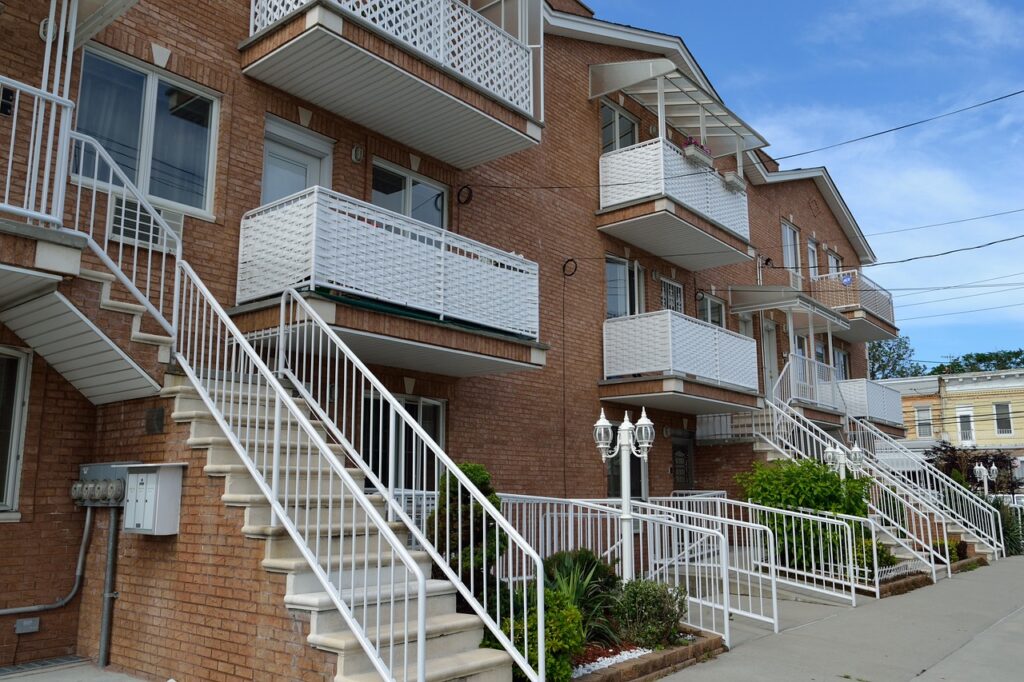Hey there, fellow investors! Ready to dive into the wild world of real estate and discover a gem that’s not only profitable but can also be inflation-proof? Get ready to explore the pros and cons of apartment blocks, those majestic beasts of real estate that promise adventure and financial stability!
Unraveling the Apartment Block Mystery
Picture this: a towering structure with multiple units, lovingly referred to as apartment blocks, block apartments, or blocks of flats. These real estate wonders are owned by savvy investors like you, who rent out individual units to lucky tenants. It’s like building your own empire within a single edifice!
Let’s talk money, because that’s what investing is all about, right? With a tower block, you hit the jackpot of diversified income streams! Imagine collecting rent from multiple tenants all under one roof. Cha-ching! Say goodbye to relying on a single tenant’s rent and hello to a symphony of cash flow!
The Inflation-Proof Dance
Now, here’s the juicy part: how apartment blocks can be inflation-proof. Check it out:
a. Rental Income Bonanza: When inflation rears its ugly head, rental prices tend to go up, up, and away! That means you can increase those rental rates and ride the wave of rising living costs. It’s like having a golden goose that lays bigger and better rent checks!
b. Sweet, Sweet Appreciation: Unlike those fickle stock markets, real estate has a history of appreciating over time. And guess what? Apartment blocks are prime candidates for jaw-dropping value appreciation. Location, demand, and property improvements can all work their magic, turning your investment into a treasure chest of wealth.
c. Bye-Bye, Currency Depreciation: Picture this: while your friends cry over the diminishing value of their cash due to pesky inflation, you’re happily sipping margaritas on your yacht. Why? Because apartment blocks are like superheroes in the face of currency depreciation. Tangible assets like real estate tend to retain or increase their value, making you the inflation-fighting champion!

The Not-So-Funny Side
Now, let’s not get too carried away in this joyous adventure. As with any investment, there are a few hiccups to keep in mind. Check out these downsides:
a. Property Management Caos: Managing an apartment block isn’t all rainbows and unicorns. It takes time, effort, and a splash of cash to handle maintenance, deal with tenants, and tackle dificult vacancies. So, grab your superhero cape and be ready for some serious property management action!
b. Rollercoaster Markets: Brace yourself for the wild ride of real estate markets. Just like life, they can be unpredictable and subject to economic turbulence. A sudden downturn can impact property values and rental demand, giving you a taste of the rollercoaster of emotions that comes with being a real estate investor.
c. Show Me the Money: Let’s face it, investing in an apartment block isn’t a spare-change kind of deal. It requires a hefty initial investment. So, make sure your pockets are deep enough to seize this opportunity and embark on your real estate adventure.
Conclusion
Apartment blocks are like the superheroes of real estate investment, ready to conquer inflation and shower you with financial bliss. Hence, with their diverse income streams, potential for appreciation, and resistance to currency depreciation, they are the real deal. Just remember to put on your property management cape, stay updated on market conditions, and do your due diligence.


